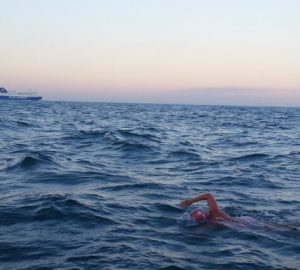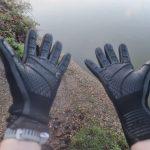
Why open water swimmers should consider joining a masters swim club
Last weekend, hundreds of adult swimmers gathered in Sheffield for the 2015 ASA National Masters and Senior Age Group Championships. This three-day event sees swimmers from 18 to 80 plus racing all four strokes over distances from 50m to 1500m in the pool at Ponds Forge. I didn’t go this year, but I spent a good part of the weekend tracking the results on-line.
Pool racing is very different to open water and results in different pressures and rewards. In a pool race, you feel very exposed. You line up to race with just five or seven other swimmers and you have a lane to yourself. The referees and judges watch your every move while the time-keepers record your time to 1/100th of a second. The feedback on your performance is immediate and brutally honest. Only one factor matters: how fast you complete the distance. In many events, it’s all over in less than a minute or two.
As I watched the results coming in I had a twinge of regret that I wasn’t there and being part of it. It’s not that I would have been in contention for any medals – even if I’d have matched my fastest times I would have been far behind the winners – but I found myself missing the excitement, nerves, tension and thrill of pool racing.
I realised something else too. A lot of swimmers who potentially would have enjoyed the event were also not there.
For example, in the men’s 1500m, the fastest time was 16:07.62, from George Russell swimming in the 18-24 age category. The slowest time was 32:43.80, by Michael Banfield in the 80-84 age category (incidentally, the winner in this category, Keith Godbehere, did 29:24.95, and earlier in the year was National Open Water Champion). In contrast, finishing times at this year’s 1-mile Great London Swim ranged from 19:05 to 1:49:21. In fact fewer than 15 per cent of the field completed the mile in under 30 minutes.
Where were all the slower swimmers this weekend? Why are there not more open water swimmers challenging themselves over 1500m in the pool or taking part in some of the shorter races?
Open water swimming is very much about taking part and giving it a go, and the satisfaction of completing the distance and coping with the conditions. It is therefore much more welcoming to swimmers with a wide range of abilities. By why shouldn’t slower swimmers also take part in and enjoy pool racing?
Completing a 50m dash in a heated pool (in a lane to yourself) might not give you that same sense of satisfaction as a mile in open water, but pushing your body through water as fast as it possibly can definitely gives you a buzz. The trick is to focus on how you feel rather than worrying about how long it took you or how many people are faster than you.
It’s a shame therefore that masters pool racing is often seen as the preserve of ex-club and national swimmers. At pool galas there are many fewer slower swimmers than in open water, which means a lot of swimmers are missing out on a fun swimming experience.
At my local masters swimming club (Teddington) we* organise a time-trial gala and encourage new members to take part. We arrange for time keepers, judges and starting blocks and make it as much like an official event as we can. For many of our swimmers this is their first ever experience of pool-based competition and the feedback is hugely positive. Whenever in life you take up swimming, testing yourself against the clock in a competitive environment is fun. It doesn’t matter what the time is or how it compares to anyone else’s. It’s just a benchmark to track your own progress.
Personally I think there’s a huge underexploited cross-over between masters swimming and open water. Dedicated pool swimmers frequently discover a new source of inspiration and love of swimming when they try open water, and open water fans can use the pool to learn new skills and swim faster.
Unfortunately, there is a major barrier to participation in pool events in the UK: you need to be a member of the ASA to take part, and you can only be a member of the ASA through a swimming club. If Teddington Masters is a guide, then masters swim groups are becoming increasingly diverse and welcoming to swimmers of a wide range of abilities – we even have triathletes swimming with us! So, if you’re not a member of a masters group, try one out. They’re a great way to improve your swimming, meet other swimmers (including open water swimmers) and open the door to new swimming experiences, such as pool-based competitions.
*I say “we” in a very loose sense as I had little to do with it
Image: National Masters 2015 (c) Mark Deakin







